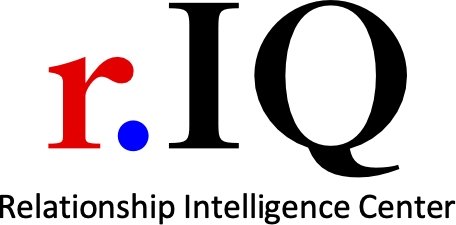It all started when...
The Relationship Intelligence Center began years ago when it was noticed that many people struggle with being misunderstood and mistreated and do not know what to do next.
Reflecting on people’s stories taught us that everyone needs, wants, desires, and deserves the same thing—connection. But not just any connection. What is most desired is the type of connection that satisfies our needs we can’t meet ourselves; these include our need for attention, affection, acknowledgment, approval, and applause.
Pursuing prospects to fulfill these needs makes relationships vital, compelling, and challenging.
The question that explains much of human suffering is, “How do I get my needs met when I don’t know what I need but know that something is missing or just not right?” Unhappiness results from the absence of having our relational needs met. Without connection, we lose contact with opportunities for validation. In this way, the experience of being disconnected is a foremost concern of most people who struggle with knowing how to reconnect.
The development of Relationship Intelligence (r.IQ) provides the foundation for every person to learn and understand how people are connected to, behave toward, and interact with each other. By optimizing relational intelligence, your relationships climb to the next level, your attitude toward conflict shifts dramatically, and you learn how to profit from life's most challenging moments - when relationship conflict leaves you feeling frustrated, disappointed, and distressed.
Improving your Relationship Intelligence focuses on mastering the interplay of four key principles:
Mutuality - to act genuinely and thoughtfully in ways that benefit everyone.
Relatability - to understand and be understood while feeling connected to others.
Adaptability - to navigate your surroundings by being smart and savvy.
Accountability - to be held to specific standards, compassionately and playfully.
By gaining critical insight into your past, identifying the basic needs of what it means to be human, and learning vital skills that turn conflict into connection, you develop the awareness, ability, and willingness to form and be formed, to respect and be respected, and to love and be loved. Sounds amazing, right?
whaT makes r.iq unique?
Every great idea starts with a great theory - an idea that promotes contemplation, application, and realization.
Relationship Intelligence (r.IQ) is the constellation of our reflections on countless relationships and hardships. When combined with the acknowledgment that humans are intensely social and that relationships alter neurobiology, shape our sense of self, and influence behavior, we learned that teaching people how to turn conflict into connection with intentionality, curiosity, and flexibility results in most valuable and gratifying human experience–closeness or intimacy.
But how do we begin to get what we desire and deserve? One of the keys to enhancing relationship intelligence begins with exploring the peaks and valleys associated with your upbringing and relationship history. These are the life lessons you learned when you didn’t realize you were being taught. Learning your most informative and influential life lessons is how you increase your relationship intelligence.
HOW IMPORTANT IS COMMUNICATION?
Built into the fabric of Relationship Intelligence, it will surprise no one that communication is essential. But there’s something more vital that when not present, communication falters. What is that something? It’s a connection.
To help understand where communication fits within the r.In the IQ model of personal development and human relationships, the following three affirmations are offered, each requiring the presence of the before achieving optimal experience.
Without connection, communication fails.
Without communication, relationships fail.
Without relationships, personal growth fails to materialize.
The interplay among these three couplings sets the stage for dynamic interaction. Through these interactions, you gather the necessary experience, insight, and intelligence. These three relational skills, in turn, enhance your ability to learn and understand how people are connected to, behave toward, and interact with each other.
The bottom line is that learning how to communicate is essential, but you must first learn how to connect to do so effectively. When you master the art of connecting first and communicating second, the changes are impressive, as shown below.
With connection, communication succeeds.
With communication, relationships succeed.
With relationships, personal growth blasts off.
WHAT IS MY POTENTIAL FOR IMPROVING RELATIONSHIP INTELLIGENCE?
Relationship Intelligence is determined by the interplay between two simple questions…both require and deserve deep and provocative thought.
Question One
Am I worthy of being loved and respected? Whittled down, am I worthy?
Question Two
Am I competent to get the love I need, want, desire, and deserve? Do I know how to love and be loved?
Do your answers surprise you? Do they reflect a profound truth about you? Do your answers explain why your experiences with love and respect have been more complex and less satisfying than you ever thought possible?
These questions probe your attachment history. Interactions with key attachment figures during upbringing are internalized to form a mental picture of yourself and others. These vital experiences form an internal working model or relational map. Your relational map reflects your sense of self and the world and informs you what, when, and how to act.
It is crucial to seek direction and guidance from your relational map during times of conflict. Your relational map reflects your attachment style, which motivates your actions during conflict. Over time, your actions become good, bad, and bizarre habits.
By the way, this is excellent news. Why? Unlike your blood type, habits can be tweaked, strengthened, and disposed of. Stated differently, while they may seem to have their own lives, habits are under your control. As you ponder your familiar ways, liking some more than others, start with identifying your top priority. Pick one habit that doesn't serve you well and focus on doing its opposite. For example, if you have a habit of coming home late, which increases relational tension, practice coming home early for one week. Remember, if getting home early is your top priority, nothing is more important. Make a mental sticky note about your commitment to this new behavior. Suppose your habit is leaving dishes in the sink overnight; practice picking up after yourself as soon as you're eating. You might also consider buying paper plates. Ha, ha.
Congratulations, knowing what to do and doing it instead of doing things by habit is a sign that your hard work is paying off and your relationship intelligence is taking off.
What is a mindset?
Mindsets are critical to optimizing your life experience—self-control, relationship intelligence, and resilience. A mindset is a mental state or attitude that impacts your perception, influences your emotions, guides your thoughts, and directs your actions.
A mindset tells you what, when, and how to do something without asking permission. This is an amazing fact. Knowing how and what your mindset is when going through everyday life's ups and downs is vital to keeping yourself on track.
The great philosopher and leading thinker in the 19th century, William James, also called the “Father of American Psychology,” provided the following statement on this subject matter.
“The greatest discovery of my generation is that human beings can alter their lives by altering their attitudes of mind.”
In the world of Relationship Intelligence, altering your attitude of mind and, therefore, altering your life revolves around knowing the significance of three separate mindsets. Each mindset is critical in learning how to turn conflict into connection. Each mindset is powerful on its own. Together, they become immensely effective in managing solvable and unsolvable problems.
The three mindsets built into the r.IQ model of human potential include:
Intentionality - moving forward with design and connection in mind
Curiosity - keeping an open mind and filling it with what is not yet known
Flexibility - adjusting your mind forward; having options so connections don’t break
WHY DO WE KEEP HAVING THE SAME FIGHT OVER & OVER?
Most don’t realize that conflict is the ultimate source of relational wisdom.
Conflict that repeats itself is a signal of unmet needs, which can be recent or remote. Learning to tap into your vulnerability during distress is key to understanding how conflict can be turned into a connection.
During conflict, your instincts compel you to protect yourself, defend your position, lash out, and, sometimes, get even. Your upbringing has programmed you to perceive conflict as negative, unwanted, and something to be avoided. Further, by not challenging your past, you blindly become committed to a life of unsatisfactory connections, spoiled relationships, and unfulfilled promises.
Does this sound familiar?
If so, Relationship Intelligence provides the framework for learning the right lessons from your past, moving toward vulnerability, and realizing your relational potential by learning how to ‘turn conflict into connection’.
WhAT are we craving?
Our culture applauds self-sufficiency, seeking sanctuary, and being ruggedly independent. Yet, doing so can make us feel lonely, misunderstood, and mistreated.
What you crave is closeness and connection—but not just any kind. You desire to be understood, treated compassionately, and told convincingly that you matter. Relationship Intelligence promises to end the cycle of disconnection by teaching you how to resolve the tension that conflict produces and learning the lesson hidden within moments of distress and discouragementBecomingng the person you were always meant to be involves learning how to ‘get along with your mind’ while moving in the direction of increased vulnerability. Stated another way, since you will discover more about yourself from the experience of being in a relationship with others, it makes obvious sense to optimize your relationship intelligence so that your needs get met, and you feel more connected to yourself, your surrounding world, and your future. By doing so, the world becomes a bit less volatile and uncertain. This is why the Relationship Intelligence model’s focus on conflict is vital.
Why does Relationship Intelligence focus so much on conflict?
When life goes according to plan, it’s easy to feel satisfied and balanced, even happy.
By contrast, when life goes off course and you experience the unexpected, your mood rapidly shifts, thoughts become negative, and the future appears less promising.
During times of conflict, your unmet needs fuel the experience of emotional distress and psychological turmoil. Initially, you become disoriented and deskilled. Then, the experience of disconnection conveys to you that you have entered a state of conflict. What makes such moments so challenging is how you handle conflict, which is influenced by the life lessons you learned when you weren’t aware you were being taught. By examining your life lessons, identifying your needs, and developing savvy interpersonal skills, you gain relational mastery and become better prepared to regain balance and increase your life satisfaction.
Learning the lessons conflict has been trying to teach you is precisely what Relationship Intelligence is all about!
Why can’t i meet the person of my dreams?
In our dreams, we all have an ideal person in mind. When we close our eyes, we can imagine the appearance, traits, responses, and even the sound of our “perfect” life partner.
Yet, in reality, is this possible?
The short answer is - of course. The understanding is needed that once you meet a person that meets your “chemical” requirements (i.e., it feels so right; she’s the one; I can’t get him off my mind), then the real work begins. From a Relationship Intelligence perspective, what is needed to meet the person of your dreams is to, one, accept the person for who they are (you’ve likely met a great person with incredible potential); two, it becomes imperative that you understand that you are equipped and burdened with the responsibility of teaching that person how to love you, and only you; and, three, become acquainted with the idea that since conflict occurs in every healthy relationship, it is necessary to learn how to turn conflict into connection.
Relationship Intelligence can help you make your dreams come true!
WhAT is the “prize” for becoming relationally intelligent?
The short answer is that life gets easier and more satisfying as your Relationship Intelligence increases. As you become more relationally competent, it is increasingly common for life to go according to plan and your needs to be met.
As you become more savvy as to how relationships work, your needs are more frequently met, you improve your ability to satisfy the needs of others, and the experience of being connected becomes more intentional than accidental. The process of being connected is desirable because it’s then you experience something very special - you feel safe, supported, and validated. Once these three connection features are satisfied, the real magic comes true, and the relationship moves to a higher level, becoming the source from which you improve your sense of mastery and resilience. This is the prize that Relationship Intelligence can help you earn!
WhAT’s the most important thing i need to know about relationships?
The most important thing to know about relationships is that YOU MATTER!
When a relationship is essential to you, it’s likely that too often, you compromise, sacrifice, or act as if you don’t matter. You fear you will not be good enough if you do not give up parts of yourself to please another. Yet, this isn’t true. It never was and never will be. It’s a lie and a form of self-deceit.
The fundamental truth is that YOU DO MATTER.
Why is this so hard to accept and acknowledge?
Because…one of the most basic truths in healthy relationships is that we are willing to do whatever it takes to be accepted, touched, validated, and loved. That is, we are neurologically encouraged to abandon our sense of self and move toward becoming the person we believe we need to be rather than the person we indeed are. Thus, the lie feels deeply and automatically true, fueling our dedication to becoming who we believe the other person needs us to be.
In its place, you need to be bold, risk-taking, and dedicated to becoming the person you were always meant to be. This allows you to loosen your grip on the old scripts “installed” during childhood or uploaded from significant life events. This process lets you reconcile the tension between where you “belong” and how you “stand out.” This is what it means to have Relationship Intelligence.
How do i learn to trust again?
In every relationship, TRUST is the last thing to arrive and the first thing to go.
Deciphering this message is vital to understanding how trust is rebuilt.
Trust is the foundation of every relationship. It is vital, essential, and indispensable. Once trust is broken, it feels as though everything has fallen apart and nothing is possible. During such moments, it is critical to return to square one. This concept of ‘square one’ is pivotal to what you know and believe to be true at the ground level.
Square one is a Relationship Intelligence code name for trust. Rebuilding trust involves committing to transparency, becoming routinely responsive to the relationship's needs, maintaining a primary focus on “us,” practicing the art of sincerity, and recognizing the opportunities for trusted connections over time.
Trust can be restored only by restoring a sense of genuineness and vulnerability. In the end, rebuilding trust takes great faith, courage, and commitment. Allow Relationship Intelligence will show you in person how this step-by-step process works!
Does love last?
The good news is love does last. However, to make love last takes work.
To strengthen a loving connection, you must change your mindset. Typically, you believe that a “love at first sight” connection will flourish all on its own. It doesn’t. Instead, it would help if you shifted your mindset from believing in magical connections to making magic happen in the connection.
To make love last, you must understand that you must teach the other person how to love you over time. Further, as you change over time, remember to keep the other person posted when your “love needs” have shifted. When your needs change, you must be a good teacher. This is excellent news, as the best way to learn something is to teach it. Relationship intelligence will help you become and remain a good teacher throughout the lifespan of your most important relationships.
They expect me to read TheIr mind. Is this possible?
Actually, yes!
Or, at the very least, sort of. Relationship intelligence is not only about understanding your own deep needs and teaching them to another; it is also about learning to understand the needs of another in a relationship. Many of us have experiences that have taught us what to expect from others, and this is the source of one major problem:
We interpret the present based on our past. Because your mind knows what has happened before, it uses these past experiences to make sense of what is happening in your current relationships. Thus, you do not understand the person before you; you stereotype them based on your past. Not only does this cause you to be stuck in a loop of what has come before, but it also prevents you from “getting” the person they deeply need from you.
A central principle of Relationship Intelligence is developing the relational mindset to approach a deep understanding of both yourself and the other person. By doing this, you will begin to anticipate their needs and can more precisely meet their needs. The benefit? Not only does this vital person get what they need from you, but they will no doubt express the increased intimacy, responsiveness, and validation because it gives you a massive helping of what you need! See how r.IQ teaches you to get in the mindset to be a mind reader!
is there such a thing as a relationship genius?
Absolutely yes!
The passion behind creating Relationship Intelligence is to help people move toward finding their inner genius. This is defined as no longer having to think about how to “turn conflict into connection.” Instead, relationship geniuses trust their instincts and keep the connection as the primary target. Nothing gets in the way of a relational genius.
Connection is the target, and hitting a bullseye is the goal!
How is this accomplished?
First, let me tell you what a relationship genius is NOT. It’s NOT a person who never makes mistakes. It’s NOT someone who remains calm under pressure at all times. It’s certainly NOT a person who always knows what to say in the heat of the moment.
A relationship genius moves forward with intention, remaining curious and knowing the importance of flexibility. A relationship genius learns the lesson conflict tries to teach and moves toward connection to communicate their deep truth. Doing so strengthens trust, grows commitment, and authenticates intimacy.
The true relationship genius does not always know what to do but is willing to learn. They focus on “getting it right,” not “being right.”
















